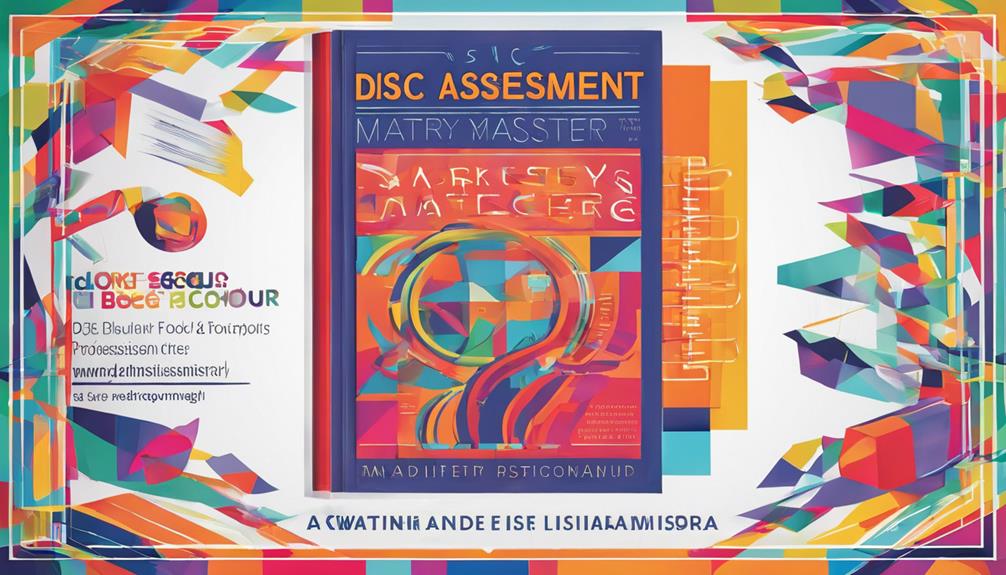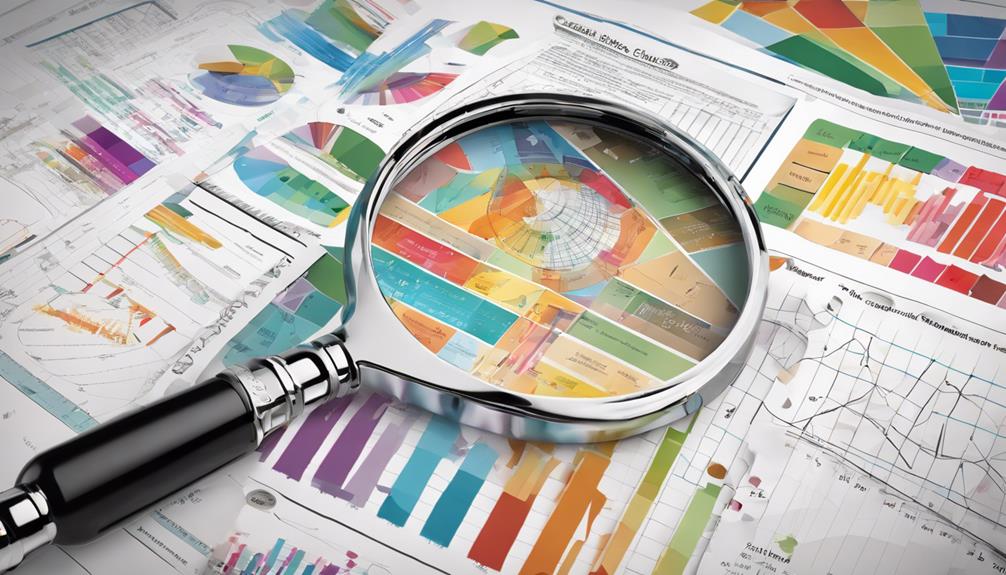Exploring the depths of your DISC Assessment Colors can be an intriguing adventure into the complexities of your personality. Revealing the subtleties of each color can offer deep insights into your actions and preferences, illuminating how you engage with the world and those around you.
Understanding the significance of these colors goes beyond mere observation; it offers a pathway to self-awareness and personal growth. So, are you ready to unlock the mysteries behind your DISC color and embark on a voyage of self-discovery?
Key Takeaways
- Understand your dominant DISC color to harness your leadership style and decision-making approach effectively.
- Leverage your influence color to build strong relationships, inspire others, and enhance team dynamics.
- Embrace your steadiness color to create harmony, provide stability, and foster empathy within your interactions.
- Utilize your conscientiousness color for meticulous attention to detail, systematic thinking, and consistent high-quality results.
Dominance: Red
Dominance is represented by the color Red in DISC assessments, embodying qualities of decisiveness and confidence. Individuals with a D style personality, characterized by being assertive and decisive, often exhibit traits that make them natural leaders. They're ambitious go-getters who thrive in competitive environments, driven by a relentless pursuit of results.
Red personalities are known for their boldness and high energy levels, always pushing forward with fearlessness. Their assertiveness can sometimes be perceived as strong-willed, but it stems from a sense of purpose and determination to achieve their goals. While they may come across as less patient due to their focus on quick decision-making, their ability to lead with clarity and authority is undeniable.
Understanding the traits associated with the Dominance personality can provide valuable insights into how these individuals approach challenges and lead others towards success.
Influence: Yellow

After exploring the assertive nature of the Red Dominance personality in DISC assessments, we now shift our focus to the vibrant and engaging Yellow Influence personality type. Yellow personalities, characterized by enthusiasm, expressiveness, and a people-centric approach, excel in building relationships, fostering teamwork, and infusing energy into group dynamics. Their creativity, optimism, and ability to inspire others make them valuable assets in various settings.
Individuals with Yellow personalities prioritize social interactions, creativity, and emotional connections, which often translate into effective communication and collaboration skills. Their knack for motivating others and spreading positivity can significantly impact team dynamics and overall productivity. Understanding the intricacies of the Yellow personality type not only enhances personal relationships but also improves leadership abilities in professional environments.
Steadiness: Green
Embodying traits of dependability, harmony, and stability, individuals identified with the Green Steadiness personality in DISC assessments contribute a sense of calm and reliability to group dynamics. Here are some insights into the characteristics of individuals with a Green personality:
- Great Listeners: Greens excel in listening attentively, fostering understanding, and creating a supportive environment within teams.
- Preference for Routine: These individuals thrive in structured environments, finding comfort and security in established routines and processes.
- Peace Seekers: Greens prioritize peace and harmony, often acting as mediators during conflicts and striving to maintain a tranquil atmosphere.
- Stability: Known for their stable and consistent nature, Greens provide a reliable presence in both personal and professional relationships.
Understanding the Green Steadiness personality can help us appreciate the invaluable contributions they make towards promoting cohesion, empathy, and tranquility within various group settings.
Conscientiousness: Blue

Exploring the Blue Conscientiousness personality trait reveals individuals who exemplify analytical precision and a methodical approach to their work. People with a Blue DISC profile are known for their attention to detail, systematic thinking, and adherence to rules. Let's delve deeper into the characteristics associated with this personality type through the following table:
| Traits | Description |
|---|---|
| Analytical | Blue personalities excel in analyzing information and making informed decisions. |
| Detail-Oriented | They pay close attention to specifics, ensuring accuracy and precision in their work. |
| Systematic | Methodical in their approach, they prefer structured processes and well-defined procedures. |
| Rule-Focused | Valuing guidelines and standards, Blues prioritize following rules to achieve desired outcomes. |
| Reliable | Known for their dependability and trustworthiness, they consistently deliver high-quality results. |
Individuals with a Blue Conscientiousness profile thrive in environments that appreciate their meticulous nature and structured work style, making them valuable assets in roles that demand precision and organization.
Unveiling Your DISC Personality Traits
Moving from understanding the Blue Conscientiousness personality trait, we now shift our focus to unveiling your own DISC Personality Traits. Understanding your DISC color is essential for gaining insights into your communication preferences, strengths, weaknesses, and overall personality traits.
- Identifying Dominant Traits: The DISC Assessment Colors categorize individuals into Dominance, Influence, Steadiness, and Compliance based on their behavior and characteristics.
- Recognizing Symbolic Colors: Your DISC Personality Traits are represented by colors like Red, Yellow, Green, and Blue, each signifying specific attributes that shape your approach to tasks and interactions.
- Enhancing Self-Awareness: Knowing your DISC color enables you to enhance your self-awareness, understand your tendencies, and leverage your strengths while addressing areas for improvement.
- Adapting Communication Style: By recognizing your DISC color, you can tailor your communication style to effectively engage with others, build better relationships, and boost your overall effectiveness in various situations.
Frequently Asked Questions
What Do the 4 Personality Colors Mean?
The 4 personality colors in the DISC assessment signify Dominance, Influence, Steadiness, and Compliance. Each color represents distinct traits like decisiveness, optimism, stability, and analysis. Understanding these colors aids in recognizing individual strengths and preferences.
What Do the Personality Colors Test Mean?
Understanding the personality colors test is essential for self-awareness and effective communication. Each color signifies unique traits, guiding us to recognize strengths and adapt in various situations. It's a powerful tool for personal growth.
What Is the Rarest Disc Assessment?
The rarest DISC assessment color is the S (Steadiness) style. Representing dependability, harmony, and stability, these individuals make up the smallest percentage. Appreciating their unique traits enhances team dynamics and values their contributions.
What Do the Results of the DISC Assessment Mean?
The results of the DISC assessment illuminate our behavioral tendencies and communication styles. They provide valuable insights into how we interact and approach tasks, aiding us in adapting our communication for better connections with others.
How Do the DISC Assessment Colors Impact Team Dynamics?
Understanding the different personality types revealed by the DISC sales assessment insights can significantly impact team dynamics. By recognizing each team member’s dominant color – Dominance, Influence, Steadiness, or Conscientiousness – managers can tailor communication and leadership styles to improve collaboration and productivity within the team.
Conclusion
As we uncover the colors of our DISC personalities, we reveal a vibrant spectrum of traits that shape who we are.
Just like a rainbow after a storm, each color adds depth and beauty to our unique composition.
Embracing our Dominance, Influence, Steadiness, and Compliance, we paint a masterpiece of self-awareness and understanding.
Let our colors shine bright, illuminating the path to personal growth and harmonious relationships.









